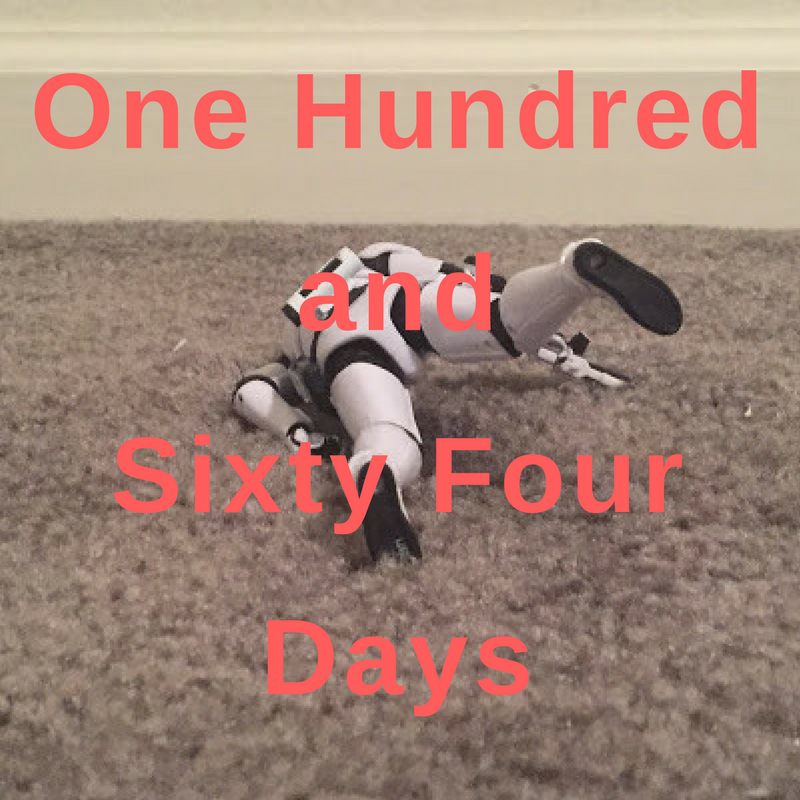
So, you may be asking yourself, what's going on here? He said he'd be blogging about What If . . . ? but for the last two weeks he's been blathering on about wonkish continuity crap, not to mention kicking the long-dessicated corpse of "One More Day" around the block. I don't see the connection and it doesn't seem to add up to anything more than tangential ramblings at this point . . .
Oh ye of little faith!
There is only one thing that I can say about superhero comic books with absolute certainty - and really, I'm not just talking about superheroes here, but all established serial genre fiction fits in here as well. These stories can never end. Sure, they may have endings, they may have cancellations or deaths, but the one foe that not even the combined might of Superman, Batman, Spider-Man and the Hulk can ever defeat is the fact that they must go forward, forever, or at least for as long as anyone is around to renew the copyrights and buy the books. (Regardless of what shape the comics industry may resemble in another twn or twenty or thirty years, I don't see these characters ever really going away, anymore than Mickey Mouse or Popeye, and barring some kind of massive apocalypse, I don't see their respective fictional milieus fading away either.)
The only real endings these kinds of characters get are usually dictated by real-world constraints outside the remit of the stories themselves. The original Valiant line, ROM, Neil Gaiman's Sandman - these stories and characters all got to enjoy their endings, but only through unusual circumstances. The Valiant characters' origins are so heavily wound up in the original Gold Key heroes that they could never be put back together again without massive disfiguring alterations. (That is, of course, barring a third party once again accruing the rights to all these characters, an extremely unlikely proposition at the present time.) Marvel quite simply doesn't have the rights to publish ROM anymore, but if the rights situation ever cleared up I believe Rom would be back in his silver space armor within six months. And Sandman - like Watchmen - is one of the very, very few marketable properties that have ever been "retired" by the Big Two out of anything resembling deference to their creators - although, while DC may honestly wish to honor Gaiman's wishes, the fact is that these books are so much a cornerstone of the company's self-image that they are probably just too afraid of sullying the brand with knock-offs. (As opposed to something like Batman or Spider-Man, Sandman and Watchmen owe much of their perceived value to an ill-defined, amorphous concept of "quality", the kind of intangible intellectual Q-rating type aura that could conceivably be sullied if, say, they hired Chuck Dixon to write The Further Adventures of Daniel, Lord of Dreams. It's an open question whether all the tangentially-related but still not technically "real" Sandman spin-offs released in the decade following the series' end actually diluted that aspect of the brand - I would argue that they did, but that's another argument for another day.)
But, perversely, because the vast majority of these characters can never, ever actually experience an ending, the fanbase and creators have become increasingly obsessed with eschatology. This is no mere speculation: practically every month sees the release of someone or other's attempt at writing "the definitive ______ story", inevitably a story of said character in an alternate future, struggling against mortality and fighting his final battle against insurmountable odds. Why are these types of stories so enduringly popular? They don't "matter", only in rare circumstances, and yet these types of speculative eschatologies are ubiquitous enough that one could almost become convinced that the stories were intrinsic to the very idea of contemporary superhero comics.
Here's the thing: they just might be.
The longer any milieu exists, the more elaborate and intricate the structure becomes. The fact that nothing ever really ends in superhero comics - leastwise, the only things which can ever be said to "end" are so tertiary as to be almost totally insignificant, like US 1 - means that the the longer the milieu continues, the more complicated the rationalizations for maintaining the status quo become. The status quo might be properly understood to represent whatever is most necessary, most intrinsic about each and every character, or what has come to be regarded so. What is and is not intrinsic is, of course, open to debate in every example - but between commercial, editorial and creative concerns, a conventional wisdom usually develops over time. More than anything else, the status quo is built on custom, and custom can change over time. But it's a long process, and as with any kind of milieu, corrections are inevitable and necessary.
The marriage of Peter Parker and Mary Jane represented a conclusive end to one of the most intrinsic elements of Spider-Man's status quo. Whatever your opinion on the matter - or if you have no opinion whatsoever - the end of the ongoing romantic soap-opera represented the end of one of the primary sources of conflict for the Spider-Mythos since the strip's very beginning. This is not a question of whether or not "One More Day" was or was not a mistake - simply taken on a mechanical level, the Spider-Marriage represented a significant departure from the characters' core principles. Peter Parker is the ultimate "Hard Luck Hero" - but if he's married, that puts the concept into a different light. Problems that may have seemed slightly less serious to an unmarried man become significantly more weighty to a married couple. The tone of the stories necessarily changes, because married life is itself an entirely different tone from single life.
(For comparisons sake, look at the marriage of Superman and Lois Lane. Every now and again I'll hear someone say that that marriage should be undone as well - but honestly, it hardly seems pressing. How many good Superman stories - intrinsically Superman stories - can you not tell with a married Superman? Unless you're proposing a return to some kind of Lois Lane / Lana Lang love triangle, or a completely unnecessary relationship with Wonder Woman, there's simply nothing that is lost by merely having Superman be married. It grounds the character, I think, and adds far more than it detracts. He's always been a little bit older than Spider-Man anyway - not so much a tentative twenty-something but a confident thirty-something. He shouldn't be tomcatting around - single Superman never did that, notwithstanding whatever extraneous Superdickery he used to get up to in the name of teaching Lois and Lana some humiliating lesson or another. I'd be surprised if that marriage is ever undone, and I have yet to see a convincing argument for it's undoing.)
In other words, the Spider-Marriage is just a big old What If . . . ? that got out of hand. The whole point of What If . . . ? - as well as old-school "Imaginary Stories" and some (but not all) "Elseworlds" - is that it acts as a safety valve for the regular milieu. What could never really happen in the milieu, at least not without irrevocably changing something important? Well, let's look at that, let's begin with that as our point of departure, and then proceed methodically from there to dissect exactly what would happen if, say, Spider-Man had joined the Fantastic Four back in Amazing #1, or Daredevil actually had shot the Kingpin during "Born Again". Once you depart from the expected status quo, the sky's the limit - and for the very best (or, leastways, most interesting) issues of What If . . . ?, that usually means putting the amps all the way up to 11 and watching everyone kill each other .
The above comic, What If . . . ? first series #42, is one of my all-time favorite Fantastic Four stories. It's a hell of a downer - basically, Susan Richards dies giving birth to Franklin, as a result of Annihilus delaying Reed's return from the Negative Zone with the MacGuffin that they needed to stabilize the birth. After the funeral Reed just falls apart, despite everything Ben, Johnny and even Namor can do to help. Ultimately, Reed decides to return to the Negative Zone and destroy Annihilus, killing himself in the process.


What is the point of this story? Despite the fact that is dismantles the Fantastic Four pretty conclusively, it's also a pretty convincing argument for just why and how the Fantastic Four work. By taking apart the status quo in an alternate universe context, the story highlights exactly how the concept should work in the mainstream milieu. The group's linchpin is family - once you take that family apart, the group can't function. The preservation of the nuclear family dynamic is the operating principle behind the Fantastic Four.




My favorite Superman stories are actually "Imaginary Stories" - "Superman Red / Superman Blue", the original "Death" - essentially What If . . . ? in all but name. From their point of departure with the mainstream milieu, these stories take the series' premise to its ultimate logical conclusion. Both stories, far from being superfluous "Imaginary", are pretty close to definitive. What is Superman about? What is at the heart of the character, from his roots to the present day? Optimism and hope. Both of those stories - and, hell, even Alan Moore's "Whatever Happened to the Man of Tomorrow" - take the concept as far as it can go. Superman could change the world if he wanted to - and even in death, just the idea of Superman is pure enough to withstand and overcome the corrupting forces of the "real world". If there is one thing Grant Morrison gets 100% right about Superman - and to his credit, he seems to understand the character better than just about anyone else - it's this idea, that Superman is nothing more and nothing less than a radiantly pure Platonic ideal of nobility and charity. It's so simple even a small child can understand it.
It's such an astoundingly simple idea, at its heart, that it's no surprise that sometimes the garden-variety run of Superman stories obscure the premise pretty badly. Just as there have been lots of Fantastic Four stories that stray far from the idea of family, and lots of Spider-Man stories that stray from the idea of heroic, almost pathological self-sacrifice (often to the detriment of his own well-being, an idea that just doesn't play the same when he's also responsible for someone else), there are lots (and lots and lots) of stories that treat Superman like just another schmuck in a costume. And, in fairness, you can't play these characters' most basic concepts as strongly as this in every story, or "core strengths" can easily become "one-trick ponies" - if every Superman story were about his meta-fictional awesomeness overcoming evil through hope and diligence, well, it'd get old pretty quick. But the beauty of alternate universe stories is that, when done right, they can illuminate some pretty essential facets of these characters' existence. The reason these What If . . . ? stories still fascinate is that they cut straight to the heart of any given character's appeal. If The Dark Knight Returns is still considered by many to be one of the defining Batman stories, its quite simply because - to a lot of people - it says something pretty damn essential about the character of Batman, something that probably couldn't have been said as easily in the context of the conventional milieu.
More to come - including a defense of the often unfairly maligned Kingdom Come. No joke.












